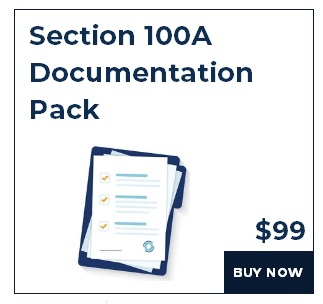
Continuing on with the theme from last week, and in anticipation of the ATO releasing their ruling on section 100A, over the next several weeks we will look at the key judicial decisions that shape our current understanding of how section 100A works. If you missed last week’s introduction to section 100A, you can read it here.
They say that the beginning is a good place to start, so let us delve into the first case that considered section 100A in detail: East Finchley. While many of the findings of Justice Hill of the Federal Court have been overturned by subsequent section 100A cases (cases that we’ll look at in the coming weeks), it is still a useful case to revisit as it provides an example of the type of conduct that section 100A was intended to address (even though the arrangement in the case was ultimately found to be ineffective without needing to resort to section 100A).
The facts of this case can be summarised as follows:
- At a meeting of the directors of East Finchley (the trustee of the Thomas Family Trust) on 23 June 1983, the trustee purported to distribute the income of the trust for the 1983 income year to three named beneficiaries and the remainder (which was substantial) to “non residents” who were relatives (of the controllers of the trust) who lived in India. In total, 126 non-resident beneficiaries were distributed $585 each, this amount being the tax-free threshold for non-residents in that income year.
- On July 1983, one of the directors of the trustee travelled to India to give to each of the non-resident beneficiaries a letter notifying them of their entitlement to their $585 income distribution, and to get them to sign a pro-forma letter authorising the trustee to credit the distribution to a loan account in the beneficiary’s name in the trust’s accounts. Under this arrangement, no money actually changed hands and no tax was paid by the trustee or the beneficiaries.
- In August 1988, in the midst of an ATO investigation, the trustee eventually paid the non-resident beneficiaries their entitlements.
The Federal Court ultimately didn’t rule on whether section 100A applied in this case. This was because there were factual issues that required the case to be remitted back to the Tribunal to be reconsidered. In particular, there was a real question of whether the resolution of the directors of the trustee at the 23 June 1983 meeting had been effective to create present entitlements in the non-resident beneficiaries.
On rehearing the matter, the Tribunal decided that there wasn’t sufficient evidence to prove that the trustee made an effective resolution by 30 June 1983 to create present entitlements in the non-resident beneficiaries. As a result, the balance of the income was assessable to the default beneficiaries which, as the default beneficiaries were minors, resulted in the trustee being liable to pay tax.
While the Federal Court ultimately remitted the matter back to the Tribunal, Justice Hill made findings on certain aspects of section 100A which were raised in the appeal. Many of those findings (such as whether the beneficiary needs to be a party to the reimbursement arrangement) have been overturned in subsequent cases. However, one finding has remained unchallenged.
Justice Hill found that by the beneficiaries acknowledging their entitlements and authorising the trustee to credit the distribution to a loan account in their name, this resulted in the trustee’s obligation to pay the distribution being satisfied and replaced by a loan back from the beneficiary to the trustee of the trust. It was held that this offset was a “payment of money” which could form part of a reimbursement arrangement and be sufficient to enliven section 100A.
Those familiar with the ATO’s view on the Division 7A treatment of UPEs to corporate beneficiaries, may recognise that East Finchley is one of the cases that the ATO relies upon in TR 2010/4 that support the view that a UPE can be converted to an ordinary loan by setoff (i.e. the UPE becomes a ‘section two’ loan).
Next week we will continue our section 100A journey with a look at the Federal Court decision in FCT v Prestige Motors Pty Ltd [1998] FCA 221.
ATO Update
Class Rulings
The ATO has issued the following rulings:
- CR 2021/53 – ICSGlobal Limited – Return of share capital and special dividend;
- CR 2021/54 – RAM Australia Elsie Street Burwood Trust – Scrip for scrip roll-over; and
- CR 2021/55 – Sunrise Energy Metals Limited – Demerger of Clean TeQ Water Limited.
Decision Impact Statement: Cash flow boost payment denied
The ATO has issued a Decision Impact Statement on the decision handed in VNBM v FCT [2021] AATA 1626 (first covered in the Birchstone Brief for the week ended 11 June 2021). In that decision, the AAT found that the taxpayer was not entitled to the first cash flow boost (CFB) payment because:
- the AAT was not persuaded the wages were actually paid; and
- the AAT was satisfied the company had entered into a scheme with the sole or dominant purpose of obtaining the CFB.
Relevantly, the company for the 5 years prior to the introduction of the CFB had paid wages to a director of $100 a week. Following the introduction of the CFB, the company paid the director one week’s wage of $108,700 and reported $50,009 of PAYG withholding (which was not paid).
In the Decision Impact Statement, the Commissioner stated that they will continue to review entities whose eligibility for CFB was impacted by significant changes in their reporting of withholding amounts. Further, the Commissioner stated that the AAT’s decision confirms the importance of considering all of the surrounding circumstances when determining whether the requisite ‘sole or dominant purpose’ has been satisfied.
TR 2021/D5 – Expenses associated with holding vacant land
The ATO has released a Draft Taxation Ruling which sets out the Commissioner’s views on deductions for expenses associated with holding vacant land. The Draft Ruling explains the Commissioner’s view of the application of section 26-102 of the Income Tax Assessment Act 1997 (Cth), which limits deductions for losses or outgoings that relate to holding vacant land.
Cases
Cessnock Holden Central Pty Ltd v FCT [2021] AATA 2576 – Jobkeeper eligibility
The AAT has denied a taxpayer company access to the JobKeeper payments for its employees on the basis that it did not carry on a business in Australia on 1 March 2020.
On 16 June 2020, the taxpayer was incorporated to acquire a car dealership business with the sale being completed on 1 August 2020. Mr Lamas (the taxpayer’s sole director and shareholder) was of the view (based on the ATO website) that the taxpayer was eligible for JobKeeper payments in relation to the employees of the business which was acquired. The Commissioner denied that the taxpayer was eligible for the JobKeeper payments.
The issue at hand was whether the taxpayer satisfied section 7 of the Coronavirus Economic Response Package (Payments and Benefits) Rule 2020, which requires applicants to have carried on a business in Australia as at 1 March 2020. Relevantly, section 9(6)(b) of the Rules also provides that an individual could be an eligible employee even if the business was carried on by a different entity after 1 March 2020. The AAT affirmed the decision of the Commissioner that the taxpayer could not satisfy section 7, as the taxpayer did not exist on 1 March 2020 and therefore cannot satisfy the requirement that it carried on business on that date. On this basis, the AAT denied the taxpayer access to the JobKeeper payments for the relevant periods.
Advanced Holdings Pty Ltd atf The Demian Trust v FCT [2021] FCAFC 135
The Full Federal Court has dismissed the taxpayer’s appeal from the decision in Advanced Holdings Pty Ltd atf The Demian Trust v FCT [2020] FCA 1479 (first covered in the Birchstone Brief for the week ended 16 October 2020). In that case, the trustee of the unit trust was in a joint venture with a third party who had financed the acquisition of three properties. The Federal Court held that the third party joint venturer did not have a 50% equitable interest in the properties because there was no express or implied intention in the joint venture agreement to create such a beneficial interest. The Court also held that the sole unitholder of the unit trust held its units in its own right, and not in its capacity as a trustee of another trust as it had never been validly appointed as trustee.
The Full Federal Court dismissed all grounds of the taxpayer’s appeal, holding that on the evidence available a new trust was not created. Further, the Full Federal Court upheld the first instance ruling on penalties.
Legislation
Treasury Laws Amendment (COVID-19 Economic Response No 2) Bill 2021 – COVID-19 disaster payments
The Bill which makes changes to the tax legislation to treat COVID-19 disaster payments as non-assessable non-exempt income has been introduced into Parliament.

